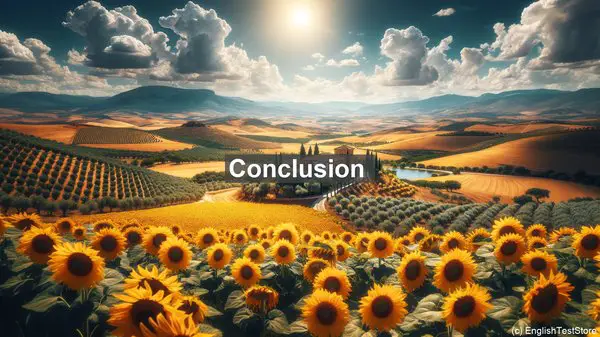Introduction to Idioms
Hello, students! Welcome to today’s lesson on English idioms. Idioms are expressions that have a figurative meaning different from their literal interpretation. They add color and depth to our language. As an exhibit artist, understanding idioms will not only enhance your communication skills but also give you insights into the art community’s nuances.
1. ‘A Picture is Worth a Thousand Words’
This idiom emphasizes the power of visual representation. As an exhibit artist, your work should speak volumes, conveying emotions and stories without the need for excessive explanation. Remember, a well-executed piece can leave a lasting impact on viewers, often more than words ever could.
2. ‘The Devil is in the Details’
When it comes to creating exhibits, attention to detail is crucial. This idiom reminds us that even the smallest elements can make or break a project. Whether it’s the lighting, placement, or choice of materials, every decision should be deliberate and well-thought-out, contributing to the overall vision.
3. ‘Thinking Outside the Box’
As an exhibit artist, innovation is key. This idiom encourages you to explore unconventional ideas and approaches. Don’t be afraid to challenge norms and push boundaries. It’s often these out-of-the-box concepts that captivate audiences and leave a lasting impression.
4. ‘Putting the Pieces Together’
Creating an exhibit is like solving a puzzle. This idiom reminds us that every element should fit seamlessly, forming a cohesive whole. Whether it’s the arrangement of artworks, the flow of the space, or the thematic connections, each piece should contribute to the larger narrative.
5. ‘A Labor of Love’
Exhibit creation is a labor-intensive process. This idiom signifies the dedication and passion required for such projects. It’s not just about the final result but also the journey. The countless hours spent researching, designing, and refining ultimately culminate in a masterpiece.

6. ‘The Big Picture’
While attention to detail is crucial, it’s equally important to have a holistic view. This idiom reminds us to consider the larger context and objectives. How does the exhibit fit into the overall theme? What message does it convey? By keeping the big picture in mind, you ensure coherence and relevance.

7. ‘Stealing the Show’
In the art world, there’s often fierce competition for attention. This idiom signifies the act of capturing the spotlight, standing out from the crowd. Whether it’s through a unique concept, striking visuals, or an interactive element, your exhibit should have that ‘wow’ factor that draws people in.
8. ‘Breaking New Ground’
Art is ever-evolving, and as an exhibit artist, you have the opportunity to be at the forefront of these changes. This idiom encourages you to be a trailblazer, introducing fresh ideas and techniques. By pushing boundaries, you not only contribute to the art world’s progress but also establish your own unique style.
9. ‘The Final Touch’
Sometimes, it’s the smallest details that make the biggest difference. This idiom reminds us of the significance of those finishing touches. Whether it’s a well-placed accent light, a carefully chosen font, or a subtle texture, these elements can elevate the entire exhibit, adding that extra layer of sophistication.
10. ‘A Work in Progress’
Art is a continuous journey, and no exhibit is ever truly ‘finished.’ This idiom signifies that there’s always room for improvement and growth. Even after the opening, you can learn from audience feedback, evaluate the exhibit’s impact, and use these insights to refine your future projects.
Conclusion
And there you have it, students! Ten idioms that are not only useful in everyday conversations but also hold special relevance for exhibit artists. By incorporating these idioms into your vocabulary, you’ll not only enhance your language skills but also gain a deeper understanding of the art world’s intricacies. So, keep exploring, keep creating, and let these idioms be your guide. Until next time, happy learning!
